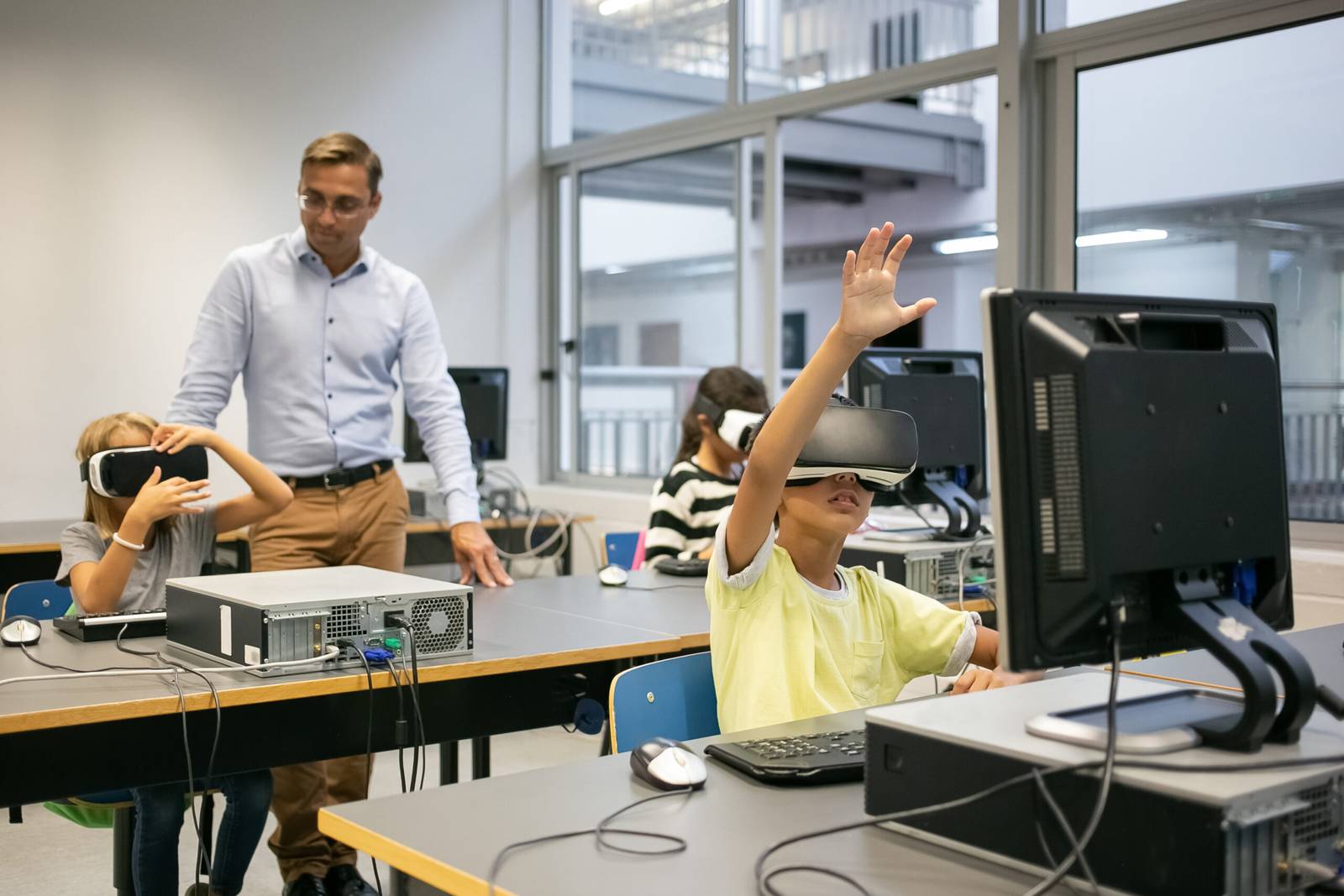Tech in Education: Adapting Classroom Learning to the Digital Age

by Web Digital
In the ever-evolving landscape of education, technology has emerged as a transformative force, reshaping the way students learn and educators teach. This article delves into the profound impact of technology on education, exploring how it is revolutionizing classrooms and preparing students for the challenges of the digital age.
The Digital Transformation of Education
The integration of technology into education is not a recent phenomenon. Over the past few decades, we have witnessed a gradual shift from traditional teaching methods to tech-enhanced learning experiences. This transformation has been accelerated by the rapid advancement of digital tools and the increasing availability of high-speed internet access.
1. Access to Information
One of the most significant advantages of technology in education is the vast access to information it provides. With a few clicks, students can explore a world of knowledge through online resources, academic databases, and e-books. This access empowers learners to explore topics beyond the confines of their textbooks, fostering a culture of curiosity and self-directed learning.
2. Personalized Learning
Technology enables teachers to customize instruction to meet the specific needs of individual students. Adaptive learning platforms and educational software use data analytics to assess students’ strengths and weaknesses, enabling the creation of personalized learning pathways. This approach helps students progress at their own pace and provides targeted support where it is most needed.
3. Enhanced Engagement
Interactive digital content, such as educational apps, simulations, and multimedia presentations, has revolutionized the classroom experience. These tools make learning more engaging and interactive, catering to different learning styles and keeping students motivated and attentive.
4. Collaboration and Communication
Technology has broken down geographical barriers, enabling students to collaborate with peers from around the world. Virtual classrooms and video conferencing tools connect students and educators across distances, fostering global perspectives and cultural understanding.
Empowering Educators
Teachers are at the heart of educational transformation, and technology equips them with powerful tools to enhance their effectiveness.
1. Digital Resources and Lesson Planning
Educators can access a wealth of digital resources to enrich their teaching materials. Online lesson planning platforms, open educational resources (OERs), and educational apps help teachers create dynamic and engaging lessons.
2. Data-Driven Instruction
Technology provides educators with real-time data on student performance. This data helps them identify areas of improvement, track progress, and make informed instructional decisions. It also enables early intervention for students who may be struggling.
3. Professional Development
Online courses, webinars, and collaborative platforms facilitate ongoing professional development for teachers. They can stay updated on best practices, educational trends, and new technologies, ensuring they remain effective educators in the digital age.
Challenges and Considerations
While the integration of technology in education offers numerous benefits, it also presents challenges that must be addressed.
1. Access Disparities
Not all students have equal access to technology and high-speed internet. Bridging the digital divide is crucial to ensuring that every student can benefit from tech-enhanced learning.
2. Privacy and Security
Safeguarding student data and ensuring online safety are paramount. Schools must implement robust cybersecurity measures and data protection policies to protect sensitive information.
3. Digital Literacy
To fully harness the potential of technology in education, students need digital literacy skills. Teaching students how to critically evaluate online information, use digital tools effectively, and navigate the digital landscape responsibly is essential.
The Future of Education
As we look ahead, the role of technology in education is set to expand even further.
1. Artificial Intelligence (AI) and Personalization
AI-driven educational platforms will become more sophisticated, providing even deeper personalization and adaptive learning experiences for students.
2. Augmented and Virtual Reality (AR/VR)
AR and VR technologies will enable immersive educational experiences, transporting students to historical events, distant planets, or inside the human body for a closer look.
3. Blended Learning
The pandemic accelerated the adoption of blended learning, combining traditional classroom instruction with online components. This hybrid approach is likely to become a staple of modern education.
4. Lifelong Learning
The rapid pace of technological advancement means that education is no longer confined to the classroom or a specific phase of life. Lifelong learning will become the norm as individuals continually update their skills and knowledge to remain competitive in the workforce.
Conclusion
Technology has become an integral part of modern education, revolutionizing the way we teach and learn. Its potential to provide equitable access to education, personalize learning experiences, and empower educators is undeniable. However, it also brings challenges that must be met head-on, including ensuring equitable access and protecting students’ privacy.
As we move forward into the digital age, the fusion of technology and education will continue to evolve, offering exciting possibilities and transformative experiences for students and educators alike. Embracing these changes with a commitment to quality, equity, and innovation will shape the future of education and prepare students to thrive in an increasingly digital world.
Recommended Posts

The Future of Education in Chatham: Embracing Digital Learning
November 11, 2024


